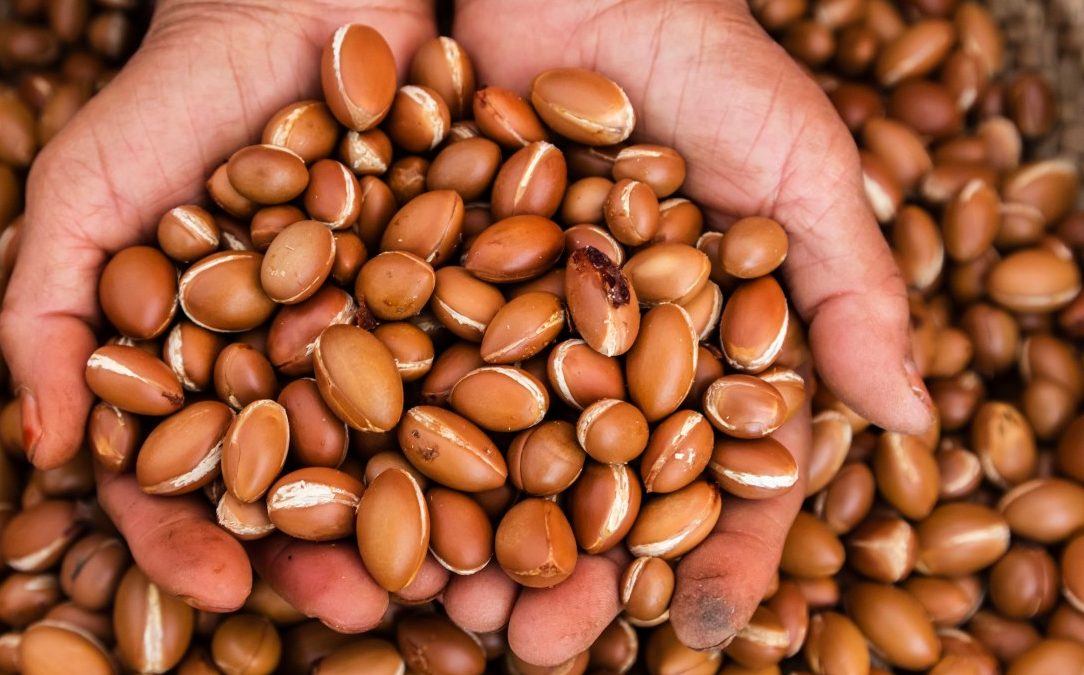Eating Nuts Is Good for You

People who eat at least 10 grams of nuts a day may be less likely to die of cancer, diabetes, heart trouble, and other common causes. Here's what you should know.
Eating a few nuts a day could extend your life, according to research. That includes peanuts (which are actually legumes) — though, alas, not peanut butter, which is high in calories and saturated fat.
Researchers have tracked numerous health benefits associated with regularly including nuts in your diet. Scientists analyzed the diets of more than 120,000 adults aged 55 to 69 in the Netherlands, and, a decade later, looked to see who had died and how. It turned out that people who ate at least 10 grams of nuts a day were less likely to have died of cancer, diabetes, heart trouble, and other common causes. A review of the research also drew the conclusion that eating nuts was a good idea to prevent common chronic diseases.
YOU MIGHT ALSO LIKE: Peanut Allergy Advice Turned Upside Down
The health benefits of peanuts, however, have been unclear, which was too bad because they’re cheaper than nuts and many people eat mostly or only peanuts. Much health research is based on populations of relatively well-off white Westerners. But a study of almost 72,000 people (who were economically disadvantaged) reported fewer deaths among low-income nut-eaters in the American South, including whites, African Americans, and people who ate only peanuts and not tree nuts. This study also found similar results among people in Shanghai.
Other specific health benefits of nuts have continued to be documented. Researchers have linked a relationship between nut consumption and a lower risk of breast cancer recurrence or death in breast cancer survivors. The women who consumed the highest amount of nuts regularly had the lowest risk.
Another study found that including nuts in your diet a couple of days a week as you hit your senior years may lower your risk of abdominal obesity — the “spare tire” around the middle — and metabolic syndrome. The result can be a lower risk of type 2 diabetes and heart disease.
Many dieters stay away from nuts because they’re considered “fattening.” As long as you don’t binge, a growing body of research confirms that eating nuts doesn’t cause weight gain and could actually help you lose pounds. The nuts at a party are a better bet than the potato chips, for sure.
You don’t have to eat a lot of nuts to reap the benefits. Ten grams, the minimum portion in the Dutch study, is 8 almonds or 6 cashews. That serving might be 60 calories, but much of them come from heart-healthy fats.
Remember, however, that the benefits can come from eating that many nuts every day. The lesson is to find a way to put nuts into your routine. Add nuts to your salad. Carry around a bag of nuts you like to tide you over after a workout or the usual times you tend to snack. Put nuts in your morning cereal.
Almonds seem to be an especially good bet for dieters. In a study of 100 pre-menopausal women who completed a three-month diet program, a group that added 50 grams of almonds a day lost about 5 pounds more.
In another study with both men and women on a liquid diet, researchers had half the group add 84 grams of almonds a day, while the other group ate the same amount of calories and protein from complex carbohydrates. At the end of six months, the almond-eaters had lost more weight and 30 percent of their fat, compared to 20 percent in the other group, and cut more inches from their waists.
Research has also revealed pistachios may be a superfood. They have lower saturated fat and fewer calories than other nuts, but they contain the highest levels of potassium, vitamin E, unsaturated fatty acids, and carotenoids — all nutrients known to have strong anti-inflammatory actions.
A review of 80 studies of pistachios and health concluded that eating the nuts regularly may help prevent high cholesterol, lower high blood pressure, regulate glucose metabolism and kidney function, and help weight management.
Nuts may bring these happy results because they tend to reduce appetite and may increase your metabolism. Should you eat butter pecan ice cream instead of plain vanilla? Maybe, if you don’t eat much.
Be aware, however, that having "cheat" foods or days doesn’t tend to help dieters. We tend to eat more later, riding on that feeling of virtue. The real answer is not to think of a reasonable quantity of nuts — no more than a handful — as a “cheat.”
On occasion, you could even consider an African peanut stew for dinner. That’s right: Go a little nuts.
Updated:
September 20, 2022
Reviewed By:
Christopher Nystuen, MD, MBA and Janet O'Dell, RN